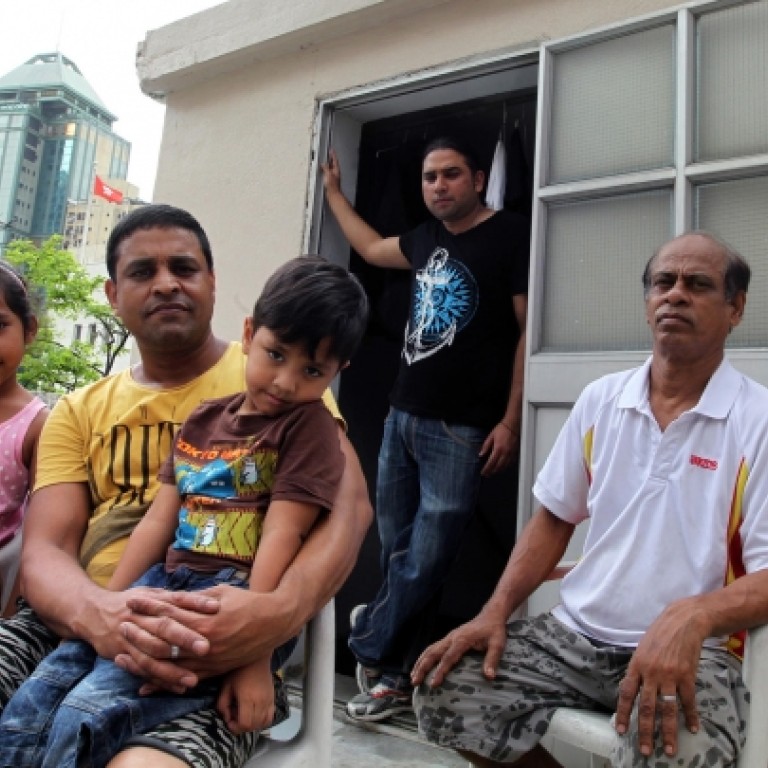
Asylum seekers can't afford to fall ill in Hong Kong
Those appealing against their rejected applications to stay don't get medical fee waivers, putting them in debt if they fall ill
Ailing asylum seekers and torture claimants still appealing against their unsuccessful applications to remain in the city say they are turning to hospital emergency services because they cannot get a waiver of their medical fees.
They argue that as their applications are still open, they should continue to enjoy the waivers they were entitled to when they first applied for protection in Hong Kong. Otherwise, they can only resort to the city's hospital emergency services, which treat patients first before asking for payment, they say.
John (not his real name), 29, a Pakistani torture claimant, came down with fever last November, after his claim was rejected by the Immigration Department.
Denied a medical fee waiver while his application for a judicial review was pending, he queued for hours at emergency services to receive treatment.
After he was treated, he had no money to foot the bill, so "for two to three days, they [the hospital] kept calling me, saying, 'your bill, your bill'," he said. "Who can pay my bill?"
He finally paid the HK$500 he owed the hospital after he was granted legal aid recently.
Mohamed Sultan, 57, a Sri Lankan who is appealing the rejection of his torture claim application, gets a waiver for his diabetes treatment. But he was not granted a waiver for getting his injuries treated after he was beaten up in the street in April.
"My case was rejected, but I am still living legally in Hong Kong … Why don't you give me a medical [waiver]?" he said.
Mohamed Sultan has been here for more than eight years while his claim for protection because of torture in his home country is being investigated.
He would rather be arrested so that he could enjoy free medical services in jail, he said. He still owes the hospital HK$1,730.
Habibur Rahman, a Bangladeshi and father of two, took his son to a doctor last September because of a heart problem. But he was not granted a medical waiver because his torture claim had been rejected.
As a result, he had to take the boy to a public hospital for emergency medical services instead. He still owes the hospital HK$600, he said.
This year, Rahman applied for the government to reassess his case after a landmark court case last December that ruled officials should give equal weight to the prospect of cruel, inhumane or degrading treatment or punishment - not just torture - if the applicant were returned to his or her home country.
But he was not sure whether the application entitled him to a medical waiver.
He dared not take his son to hospital again as he was afraid he would be arrested if he could not settle the bill. He had to resort to borrowing money from friends in order to consult private doctors on his son's condition, he said.
The head of a rights group that helps people seeking protection said the government was putting up roadblocks against such people so that they were denied a normal life in the city.
Vision First executive director Cosmo Beatson said: "This is cultural rejection. They try to make your life so hard that you will just give up and leave.
"How can you leave asylum seekers in the city who are sick or pregnant? This is immoral."
A Hospital Authority spokesman said medical waivers for people whose torture and asylum claims could not be validated followed those of non-residents. To ensure "rational use of limited public resources, their fees generally would not be waived unless there were exceptional circumstances". Each application was considered separately, he said.
The majority of torture claimants in Hong Kong came from South Asia or Southeast Asia, including Indonesia, Pakistan, India, the Philippines, Bangladesh, Nepal and Sri Lanka.
Those whose claims are denied by the Immigration Department have a right to appeal to the Torture Claims Appeal Board.
